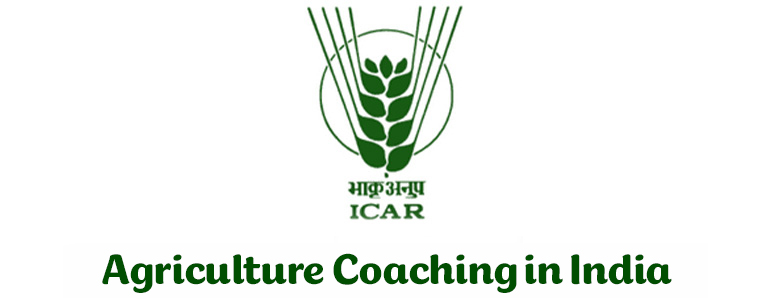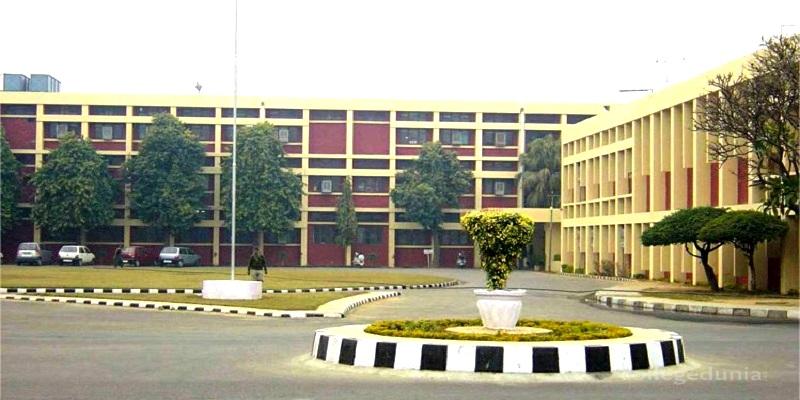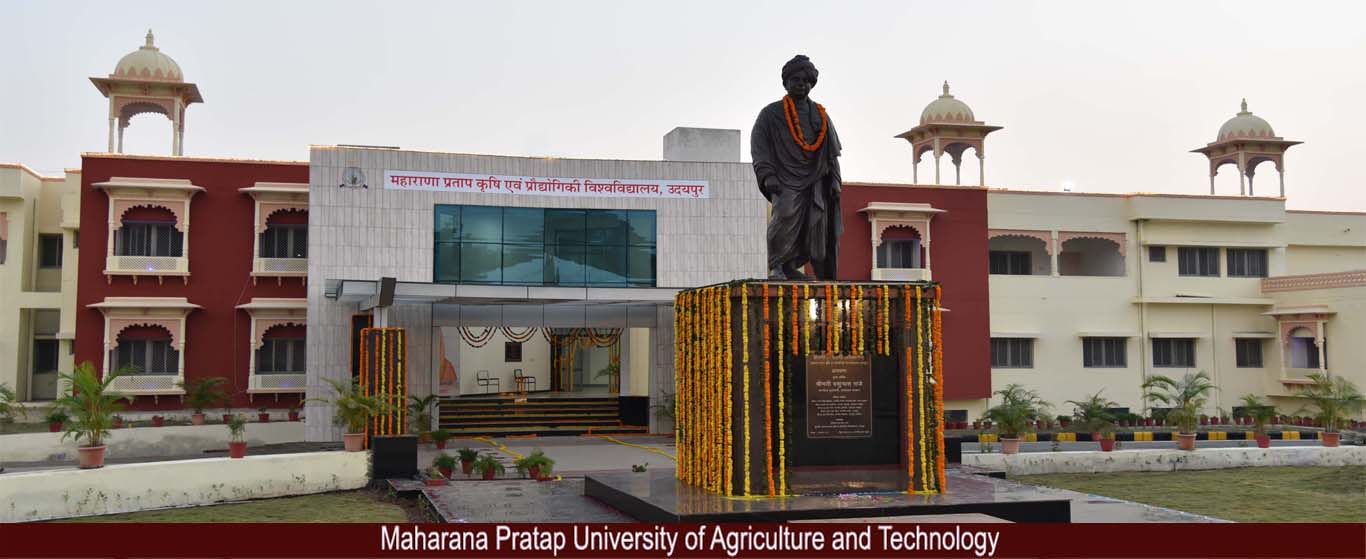
यह परीक्षा भारतीय कृषि अनुसंधान परिषद् (Indian Council of Agricultural Research) नई दिल्ली द्वारा अखिल भारतीय स्तर पर कृषि विश्वविद्यालयों के लिए 15 प्रतिशत सीटों के लिए प्रतिवर्ष आयोजित की जाती है। इस परीक्षा में Agriculture, Biology, Chemistry, Math and Physics पाँचों विषयों में से कक्षा 12 विज्ञान वर्ग के कोई तीन विषय लेकर परीक्षा दी जा सकती है। प्रत्येक विषय के 50 प्रश्न होते हैं तथा प्रत्येक प्रश्न 4 अंक का होता है, अधिकतम अंक 600 है। अधिक जानकारी के लिए www.ntaicar.nic.in पर Login करें।
कृषि अनुसंधान एवं शिक्षा विभाग, कृषि मंत्रालय, भारत सरकार के तहत भारतीय कृषि अनुसंधान परिषद एक स्वायत्तशासी संस्था है। रॉयल कमीशन की कृषि पर रिपोर्ट के अनुसरण में सोसाइटी रजिस्ट्रीकरण अधिनियम, 1860 के तहत पंजीकृत और 16 जुलाई, 1929 को स्थापित इस सोसाइटी का पहले नाम इंपीरियल काउंसिल ऑफ एग्रीकल्चरल रिसर्च था। भारतीय कृषि अनुसंधान परिषद का मुख्यालय नई दिल्ली स्थित है।
भारत वर्ष में बागवानी, मात्स्यिकी और पशु विज्ञान सहित कृषि के क्षेत्र में समन्वयन, मार्गदर्शन और अनुसंधान प्रबन्धन एवं शिक्षा के लिए परिषद सर्वोच्च निकाय है। देश भर में फैले 101 भारतीय कृषि अनुसंधान संस्थानों और 71 कृषि विश्वविद्यालयों सहित यह विश्व में सर्वाधिक विस्तृत राष्ट्रीय कृषि पद्धति है।
Royal Institute: Empowering Future Agriculture Leaders with Top-Notch Coaching
Are you looking to improve your agricultural knowledge and skills? Do you want to stay ahead of the competition and achieve success in the industry? The Royal Institute is here to help. As a leading provider of Agriculture Coaching in India, we offer a comprehensive range of courses and training programs designed to help farmers, students, and professionals alike.
Our Online Agriculture Coaching programs provide flexible and convenient learning options for those who cannot attend in-person classes. We also offer on-site coaching sessions for those who prefer face-to-face learning. Our experienced instructors are dedicated to providing personalized attention and guidance to each student, ensuring they get the most out of their learning experience. We provide the best agriculture coaching as our courses are designed to be practical, hands-on, and relevant to the current trends and demands of the industry. Our goal is to equip our students with the skills, knowledge, and confidence they need to succeed in their agricultural pursuits.
Discover the Importance of Agriculture Coaching
Agriculture has always been a vital sector in India, contributing significantly to the overall economy of the country. As such, it requires skilled professionals and leaders to drive innovation and growth in the industry. Royal Institute recognizes this need and is committed to providing the finest Agriculture Coaching in India. With a focus on practical training and hands-on experience, we empower students with the knowledge and skills necessary to become successful agriculture professionals.
We understand that the agriculture sector is constantly evolving, and our coaching programs are designed to keep up with the latest trends and technologies. Our expert faculty members are industry professionals with years of experience in the field, providing students with real-world insights and practical knowledge.
Agriculture learning is a type of education that focuses on teaching individuals about agriculture, farming techniques, and related topics. This coaching is aimed at helping farmers, students, and professionals to develop their knowledge, skills, and abilities in the field of agriculture.
In the present generation, Agriculture Coaching is gaining increasing importance due to several factors. Agriculture plays a crucial role in global food security, sustainability, and economic development. Here are some reasons why agriculture learning is becoming more and more important:
- Technological advancements: The field of agriculture has witnessed significant advancements in technology, such as precision farming, genetic engineering, and automation. Agriculture learning helps farmers and agricultural professionals stay updated with the latest techniques and tools, enabling them to optimize productivity, reduce costs, and minimize environmental impact.
- Changing agricultural practices: With the growing global population and changing dietary preferences, there is a need for more efficient and sustainable agricultural practices. Coaching provides guidance on modern farming methods, such as organic farming, hydroponics, and vertical farming, which can maximize yield while minimizing resource usage and environmental degradation.
- Climate change and resilience: Agriculture is highly vulnerable to the impacts of climate change, including extreme weather events, changing rainfall patterns, and rising temperatures. Coaching helps farmers adapt to these challenges by providing knowledge on climate-smart agriculture practices, such as drought-resistant crops, water management strategies, and soil conservation techniques.
- Market demand and entrepreneurship: The agriculture sector is not only about production but also about marketing and entrepreneurship. Coaching equips individuals with the skills and knowledge needed to identify market opportunities, develop business plans, and navigate the complexities of agricultural markets. It helps aspiring farmers and agribusiness professionals to make informed decisions, enhance their competitiveness, and explore value-added opportunities.
- Sustainable resource management: With increasing concerns about natural resource depletion and environmental degradation, there is a growing emphasis on sustainable resource management in agriculture. Coaching educates farmers on efficient water usage, soil health management, integrated pest management, and the use of renewable energy sources. By adopting sustainable practices, farmers can preserve the environment for future generations while ensuring long-term productivity.
- Policy and regulatory compliance: Agriculture is subject to various policies, regulations, and certifications related to food safety, environmental protection, and labor standards. Coaching helps individuals understand and comply with these requirements, ensuring that their operations are in line with legal and ethical standards. It also enables farmers to access government schemes, subsidies, and financial assistance programs.
Overall, Agriculture Coaching is gaining significance in the present generation due to the need for sustainable and efficient farming practices, adaptation to climate change, entrepreneurial skills, and compliance with regulations. It empowers individuals in the agriculture sector with knowledge and skills to meet the challenges of the modern agricultural landscape, ultimately contributing to food security, economic development, and environmental sustainability.
Benefits of Agriculture Learning.
Agriculture learning programs are an effective way for students to learn about agriculture and develop the necessary skills and knowledge to pursue a career in the field. By enrolling in one of India’s finest agriculture learning programs, students can gain practical knowledge about modern farming techniques and technologies, such as precision farming, crop rotation, and irrigation systems. This knowledge can help students maximize their crop yield and increase their profits.
Furthermore, it can provide students with career opportunities in various fields related to agriculture, such as farm management, agribusiness, and agricultural engineering. As the demand for food continues to grow, the agriculture sector is expected to expand, creating numerous job opportunities for students who have acquired the necessary skills and knowledge through Best Agriculture Coaching.
It can also teach students about sustainable agriculture practices, which can help preserve the environment and reduce the negative impact of agriculture on natural resources. By learning about organic farming, conservation tillage, and other practices, students can contribute to the conservation of the environment and help promote biodiversity.
Overall, agriculture learning can provide numerous benefits for students, such as practical knowledge, career opportunities, improved crop yield, environmental conservation skills, and an entrepreneurial mindset. Students who are interested in pursuing a career in agriculture or have a passion for farming and cultivating crops should definitely consider enrolling in our one the finest agriculture learning programmes.
Online Agriculture Coaching
Taking online coaching can provide numerous benefits for students. Firstly, online coaching offers flexibility and convenience. Students can access the coaching sessions from anywhere and at any time, allowing them to fit their learning around their other commitments. This flexibility is particularly beneficial for students who may have part-time jobs, extracurricular activities, or other responsibilities.
Secondly, online coaching provides a personalized learning experience. Students can receive individual attention and guidance from experienced agriculture experts. This personalized approach allows students to focus on their specific areas of interest or weaknesses, enabling them to improve their understanding and skills more effectively.
Moreover, online coaching often includes interactive learning materials such as videos, quizzes, and simulations. These resources make the learning process engaging and interactive, enhancing student retention and understanding of agricultural concepts. Additionally, online coaching can connect students with a wider community of learners. They can interact with peers from different regions and backgrounds, facilitating the exchange of ideas and experiences. This networking opportunity can expand students’ knowledge and perspectives on agriculture.
Lastly, online coaching can be more cost-effective compared to traditional in-person coaching. Students can save on travel expenses and study materials, and many online coaching platforms offer affordable subscription plans or flexible payment options.
The Royal Institute offers the most knowledgeable and Best Agriculture Coaching programs that provide flexibility and convenience for students who cannot attend in-person classes. Our online programs include a range of courses and training sessions that are designed to meet the needs of students of all levels of expertise.
Teaching Methodology at The Royal Institute
At The Royal Institute, we believe in providing a holistic learning experience for our students. Our teaching methodology is designed to be student-centric, with a focus on practical, hands-on learning that is relevant to the needs of the industry. We use a variety of teaching methods, including lectures, group discussions, case studies, and field visits.
Our instructors are experienced professionals with a wealth of knowledge and expertise in the field of agriculture. They are dedicated to providing personalized attention and guidance to each student, ensuring that they receive the support they need to achieve their goals.
Why Choose Agriculture as Your Career Option?
For many people, agriculture is more than just a job, it’s a way of life. Growing up in a rural community or on a farm can instil a love and appreciation for the land, animals, and the hard work that goes into producing food for people all over the world.
Agriculture is one of the oldest and most essential professions in the world, providing the foundation for human civilization and development. Today, agriculture remains an important industry, contributing to food security, economic growth, and environmental sustainability. Choosing a career in agriculture can be a wise decision for students who want to make a positive impact on the world while building a stable and rewarding career.
One of the primary reasons to consider a career in agriculture is the opportunity to contribute to food security. With the world’s population expected to reach 9 billion by 2050, there will be an increased demand for food, fiber, and fuel. The agriculture industry will play a critical role in meeting this demand by producing more food and increasing crop yields. By working in agriculture, students can help to ensure that people have access to the food they need to live healthy and productive lives.
Another benefit of a career in agriculture is the potential for economic growth. Agriculture is a significant source of employment and income in many countries, particularly in rural areas. By pursuing a career in agriculture, students can help to create jobs and stimulate economic development in their communities. Additionally, the agriculture industry is constantly evolving, providing opportunities for innovation and entrepreneurship. Students who are interested in starting their own businesses can find many opportunities in agriculture, such as developing new technologies, creating sustainable farming practices, or marketing agricultural products.
Agriculture is also essential for environmental sustainability. Sustainable agriculture practices can help to protect the environment, preserve natural resources, and reduce the impact of climate change. By working in agriculture, students can contribute to the development of sustainable farming practices, such as crop rotation, conservation tillage, and integrated pest management. These practices can help to reduce greenhouse gas emissions, protect biodiversity, and conserve soil and water resources.
Finally, a career in agriculture can be personally fulfilling. Working in agriculture can provide a sense of purpose and meaning, as individuals contribute to the production of food and the development of sustainable communities. Agriculture also provides opportunities to work outdoors, engage with nature, and connect with local communities. For those who value independence and self-sufficiency, a career in agriculture can offer the freedom and flexibility to work on their own terms.
Thus, Agriculture learning is an important and rewarding career option for students who are interested in contributing to food security, economic growth, and environmental sustainability. By working in agriculture, individuals can make a positive impact on the world while building a stable and fulfilling career.
Student Success Stories
The Royal Institute takes pride in the success stories of its students in the agriculture industry. The Agriculture learning programs offered by our institute have equipped students with the amazing knowledge and supportive skills necessary for success in the field. Many of the institute’s alumni have gone on to achieve great things, from running successful farms to establishing thriving agribusinesses. The impact of their success is felt throughout the industry, as they contribute to the growth and development of the sector. Our commitment to providing quality education and training in agriculture has helped us to create a new generation of skilled professionals who are making a real difference in the industry. Our institute is proud to have played a part in the success of our students and looks forward to continuing to support their future achievements.
Learning Methodology at The Royal Institute
At our esteemed institute, we believe that effective learning methodologies are key to nurturing aspiring students for success in agriculture entrance exams. Our institution is committed to providing a dynamic and engaging learning experience that goes beyond traditional teaching methods. Through our innovative approach, we aim to empower students with the knowledge, skills, and critical thinking abilities required to acquire the best Agriculture Coaching in India.
Blended Learning Approach: We embrace a blended learning approach that combines the best of traditional classroom teaching with modern technological advancements. Our experienced faculty members employ interactive teaching techniques, such as group discussions, case studies, and role-playing exercises, to foster a collaborative and intellectually stimulating environment. Additionally, we integrate technology into our classrooms, utilizing multimedia presentations, virtual simulations, and online learning platforms to enhance the learning experience.
Practical Application of Theoretical Knowledge: While our institute’s Agriculture Coaching in India primarily focuses on theoretical knowledge, we understand the importance of practical application in the field of agriculture. Though we do not provide practical training, we bridge the gap by incorporating practical examples, case studies, and real-life scenarios into our curriculum. This approach enables students to understand how theoretical concepts translate into practical applications, preparing them for the challenges they may face in their future agricultural careers.
Conceptual Understanding and Critical Thinking: We prioritize the development of a strong conceptual understanding and critical thinking skills among our students. Our faculty emphasizes the importance of grasping fundamental concepts, rather than rote memorization. Through in-depth discussions, problem-solving exercises, and analytical thinking tasks, we encourage students to think critically, analyze complex agricultural issues, and propose innovative solutions. This approach not only enhances their academic performance but also equips them with the skills required to tackle real-world challenges.
Individualized Attention and Mentorship: We understand that every student has unique strengths, weaknesses, and learning styles. To address these individual differences, we provide individualized attention and mentorship to our students. Our faculty members are readily available to clarify doubts, provide personalized guidance, and track the progress of each student. We believe that this personalized approach fosters a supportive learning environment, enabling students to overcome challenges, build confidence, and achieve their full potential.
Continuous Assessment and Feedback: Regular assessments and feedback play a crucial role in the learning process. We conduct frequent mock tests, quizzes, and assignments to evaluate students’ understanding of the subject matter. These assessments not only help us identify areas where students may need additional support but also allow students to gauge their own progress. Our faculty members provide constructive feedback, highlighting areas of improvement and suggesting strategies for further enhancement, ensuring a continuous learning and growth trajectory.
Industry Interaction and Guest Lectures: To provide students with real-world insights and industry exposure, we organize guest lectures and interactive sessions with industry experts, renowned researchers, and successful professionals in the field of agriculture through our Online Agriculture Coaching. These interactions allow students to gain valuable knowledge, understand current industry trends, and develop a broader perspective on agricultural practices. Guest lectures also serve as a source of inspiration, motivating students to aim for excellence and pursue innovative approaches to agriculture.
Peer Learning and Collaboration: We believe in the power of peer learning and collaboration. Our institute also provides Online Agriculture Coaching to encourage students to actively engage with their peers, fostering an environment where they can share ideas, collaborate on projects, and learn from one another’s experiences. Group activities, team-based assignments, and study circles are organized to promote effective communication, teamwork, and the exchange of diverse perspectives.
Overall, our institute’s learning methodology goes beyond traditional teaching techniques, focusing on a blended approach, practical application, conceptual understanding, critical thinking, individualized attention, continuous assessment, industry interaction, and peer learning. We are dedicated to providing an exceptional educational experience that equips students with the necessary knowledge, skills, and mindset to succeed in agriculture college’s entrance exams.





